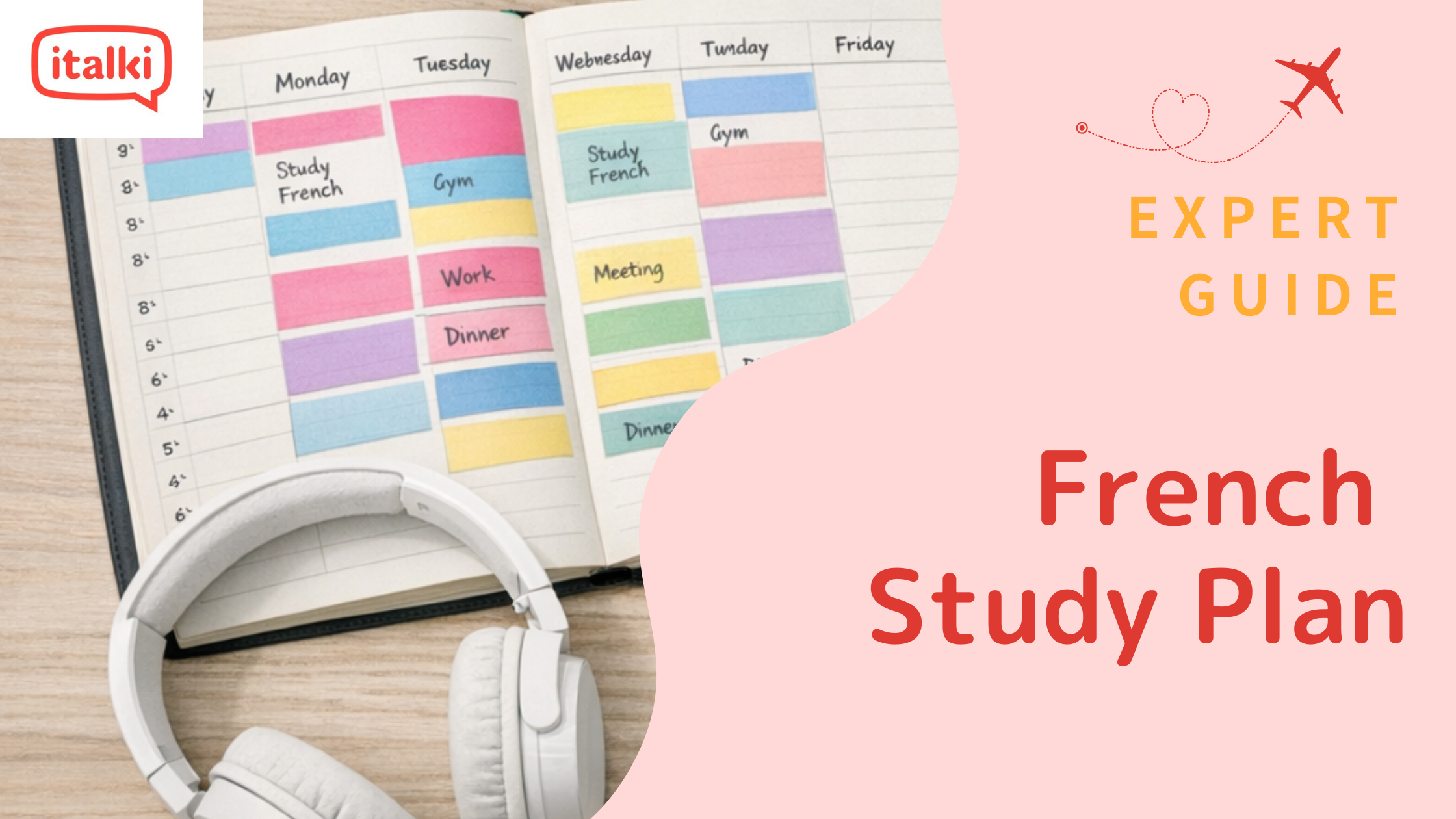If you are a French learner, you must have wondered how difficult French is or how long it does take to learn French at least once in your lifetime. If so, this post is just the right place for you. Let’s look at how you can make your life easier as you embark on the journey of learning French.
Anyone who has attempted to learn French will agree that it is a difficult language to master. You must learn a number of grammar rules as well as other important aspects of the language. Pronunciation, listening, and vocabulary will undoubtedly be difficult.
Furthermore, French is very different from English and can be difficult to learn for English speakers. Anyone, with a little effort and perseverance, can become good at French and can speak French fluently. You just need to know how to approach the most difficult topics, and we are here to help you in this regard.
In this guide, we have highlighted the major difficulties in learning French and how to overcome them as quickly as possible.
1. French grammar can give a tough time
Many native English speakers find French grammar difficult to learn because there are several rules that differ from English.

In French, for example, gender agreement is required for nouns and adjectives, which can be difficult to manage because grammatical gender does not always correspond to the gender of the object or person it defies. Furthermore, verb conjugation can also be difficult.
Then there’s the subjunctive mood, which is used so infrequently in English that it can be difficult to understand when to use it correctly. All of this does not make learning the French language easier for native English speakers.
Gender, conjugation, and subjunctive mood are the three most difficult aspects of French grammar to master. Once you have mastered them, your journey to learning French will be much smoother. And, to help you understand these topics, here are a few quick grammar explanations.
Gender
Gender agreement is required in French for all nouns and adjectives, even if the nouns describe inanimate objects (for example, la table). This requires you to understand the gender of each noun (masculine or feminine), as well as the gender of the adjectives that describe them.

For instance:
– Le chien est un animal. (The dog is an animal.) The words “animal” and “chien” are both masculine.
– La chatte est une bête. (The cat is a beast.) The words “chatte” and “bête” are both feminine.
– Elsa et Emily sommes fatuigees. (Elsa and Emily are tired.) We are talking about two girls, which is why a second e is added to the adjective ending.
In some cases, it can be quite easy to determine a word’s gender based on the ending.
Feminine ending:
– e, -ine, -ise, -alle, -elle, -esse, -ette, -euse, -ance and -ence;
– tion, -sion, -son;
– ure, -ude, -ade;
– ée, -té, -ière.
Masculine ending:
– ste and -tre;
– u, -ou, -oir;
– me, -ment, -isme;
– ble and -cle;
– eau and -eur;
– age and -ege;
However, there are numerous exceptions to this rule, which can be puzzling. It’s always a good idea to look it up in the dictionary to make sure you are using the correct gender.
Conjugations
French has different verb conjugations. Given the number of exceptions to remember, this is one of the most difficult aspects of French grammar.
Regular verbs in French have three conjugations (-er, -ir, and -re), each with its own set of rules. Then there are irregular verbs, which do not follow any rules and are thus even more difficult to conjugate.
The French language has a number of verb tenses that do not exist in English. Not only must you learn how to conjugate verbs, but you must also know when to use each tense. Fortunately, there are some pointers that can help you quickly master French conjugation.
– Concentrate on one verb at a time and practice using it in various contexts and tenses.
– Make your own sentences with verbs you are having trouble conjugating so you can remember the correct forms more easily.
– When it comes to learning French verb conjugation, make sure to take advantage of online resources and grammar books. They are a great tool to learn common French verbs and the contexts in which they are used.
– Many people benefit from the repetition of verb conjugations out loud as much as possible. Flashcards can also be used in this situation.

Learn French on italki
Join the global community of language learners today! Sign up for italki and start improving your language skills with native-speaking teachers from around the world.
Create an italki account
Subjunctive Mood
Because the subjunctive mood is rarely used in English, it can be difficult to understand when to use it in French. This mood is used to express reservations, uncertainty, or wishes about a fact or idea. It is frequently found in subordinate clauses and serves to add subtlety to a sentence.
To use the subjunctive mood correctly in French, you must know when to use it and how to form it, which requires remembering all of the correct subjunctive verb endings and context. Some good guidelines for mastering it are as follows:
– Begin by memorizing the most frequently used irregular verbs: aller, être, avoir, venir, prendre. To memorize the regular endings, learn a few regular verb conjugations in the subjunctive mood.
– Remember the most common grammatical structures in which the subjunctive is used i.e.
| Il faut que | It is necessary |
| Je veux que | I want that |
| C’est intéressant que | It is interesting that |
| C’est dommage que | It’s a pity that |
| C’est étrange que | It’s strange that |
– When learning the conjugations, say “que” before the verb, as in “que tu le fasses.” This will aid your brain’s ability to associate the new conjugation rules with the traditional subjunctive structure of “que” + verb.
2. French pronunciation can be tricky
Pronunciation can be one of the most prominent difficulties in learning French. This is due to the fact that there are several sounds in French that do not exist in English. Furthermore, the French accent differs significantly from the American or British accents, making it difficult for English speakers to understand French speakers.
Some of the most difficult sounds in the French language are:
– The Letter R
– Nasal Vowels
The Letter R
Because there are several ways to say “r” in French, it can be difficult for English speakers to pronounce it correctly. In general, you should pronounce the French “r” by placing the tip of your tongue on the roof of your mouth and curling it backward until it touches your back teeth.
Saying the sound /g/ (which will get your tongue in the proper position) and then gargling a bit is a simple and entertaining way to say it. It may take some getting used to, but with a little practice, you will be able to pronounce the letter “r” like a true French person.
Nasal Vowels
The nasal vowels are one of the most difficult aspects of French pronunciation. This is because they are not commonly used in English, and as a result, they can be difficult to grasp. Nonetheless, nasal sounds are present in even the most basic words, such as “bon” above, so mastering them is essential.
– Nasal vowels are formed when a vowel is pronounced while exhaling through the nose.
– In French, there are four nasal vowels: /ã/ (pronounced as ang in ‘sang’, /ɛ̃/ (pronounced like ahn), /õ/ (pronounced like ohn), and /œ/ (pronounced like uhn).
– If a nasal sound is not followed by another vowel, it is pronounced as a regular vowel.
A native English speaker may find it difficult to pronounce the nasal vowels, but here’s a hint: there are three nasal sounds in English. Try saying “sing” or “song” and notice how the air inside your mouth becomes blocked at the end of these words when the back of your tongue presses against the soft palate. This is also how the nasal vowels are pronounced in French.
3. Understanding spoken French can be difficult
For new learners, spoken French can be a huge challenge. They must not only learn all of the different grammar rules, but they must also understand the spoken language, which can be quite fast-paced and full of slang words.
Here are a few tips that can help in this regard:
– As much as possible, listen to French audio and videos. The more you are exposed to the spoken language, the easier it will be to understand.
– Look for a French conversation partner. This will allow you to practice your listening skills in a realistic setting.
– If you don’t understand something, don’t be afraid to ask for clarification. The person speaking will most likely be delighted to assist you.
– Try not to be concerned about understanding everything perfectly. It is natural to make errors and miss a few words here and there. Simply keep trying, and you will gradually improve.
– Get yourself enrolled with italki. You can learn French online under the guidance of highly experienced French teachers who can help you with all the difficulties in learning French. Book your lessons and get started!

Find Your Perfect Teacher
At italki, you can find your French tutor from all qualified and experienced teachers. Now experience the excellent language learning journey!
Book a trial lesson
Conclusion
Is French difficult to learn? The answer is dependent on the individual. Some people find it easy to learn this beautiful language, while others find it difficult. Anyone, with a little effort and perseverance, can learn to speak French fluently.
If you don’t understand something, don’t be afraid to ask for clarification, try to relax and not worry about understanding everything perfectly. Keep on practicing till you get it right.
Want to learn a language at italki?
Here are the best resources for you!




















